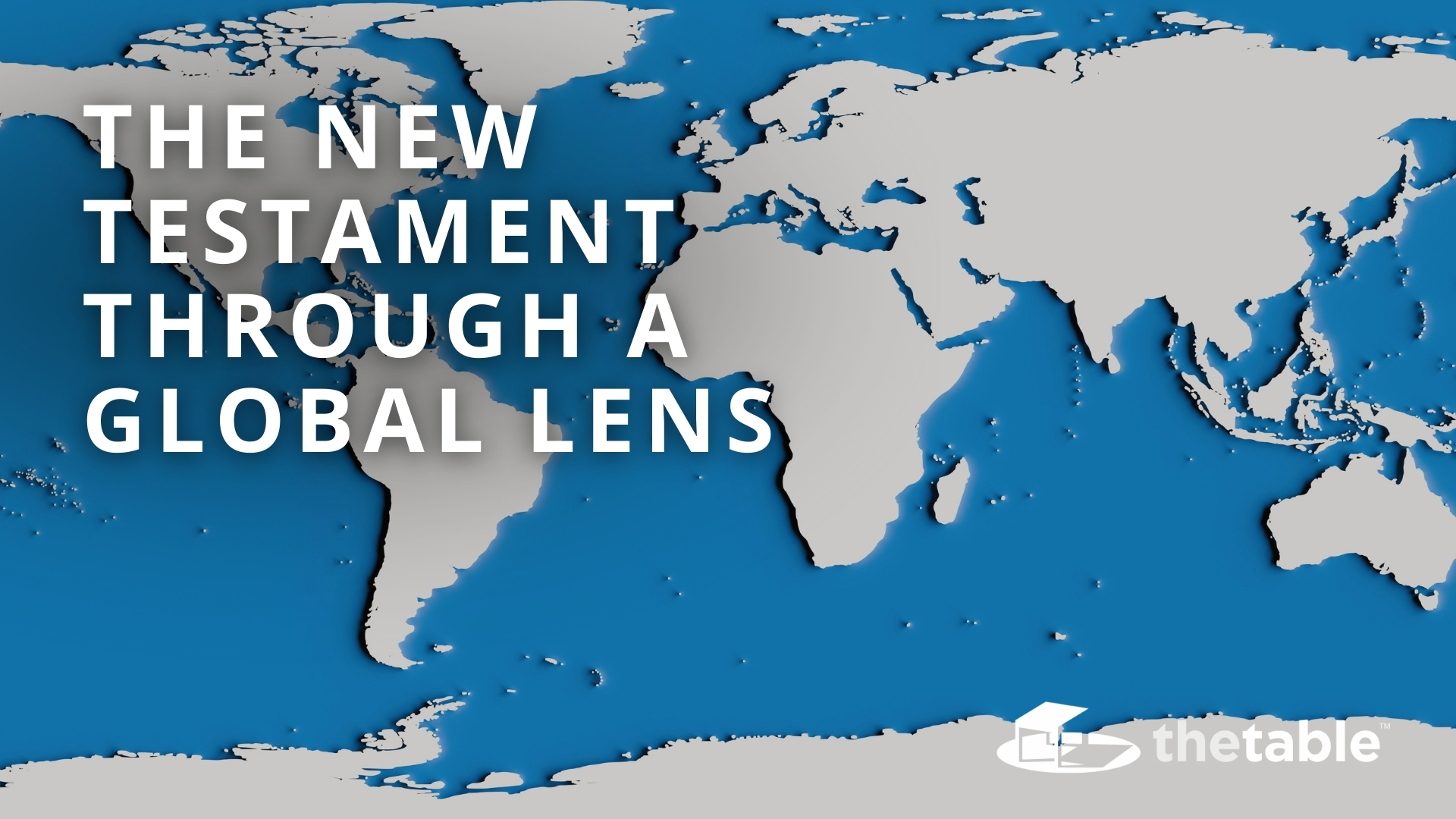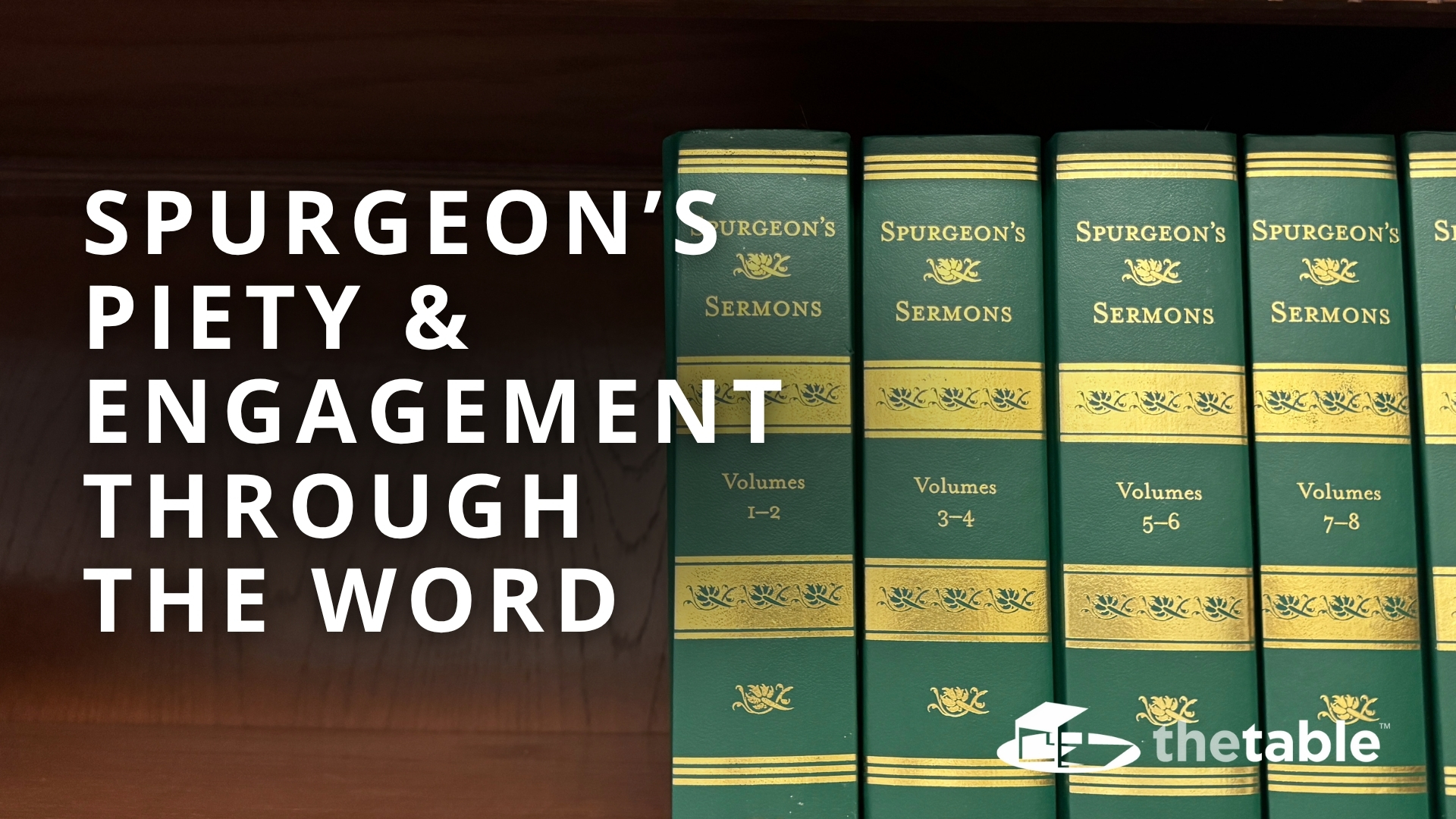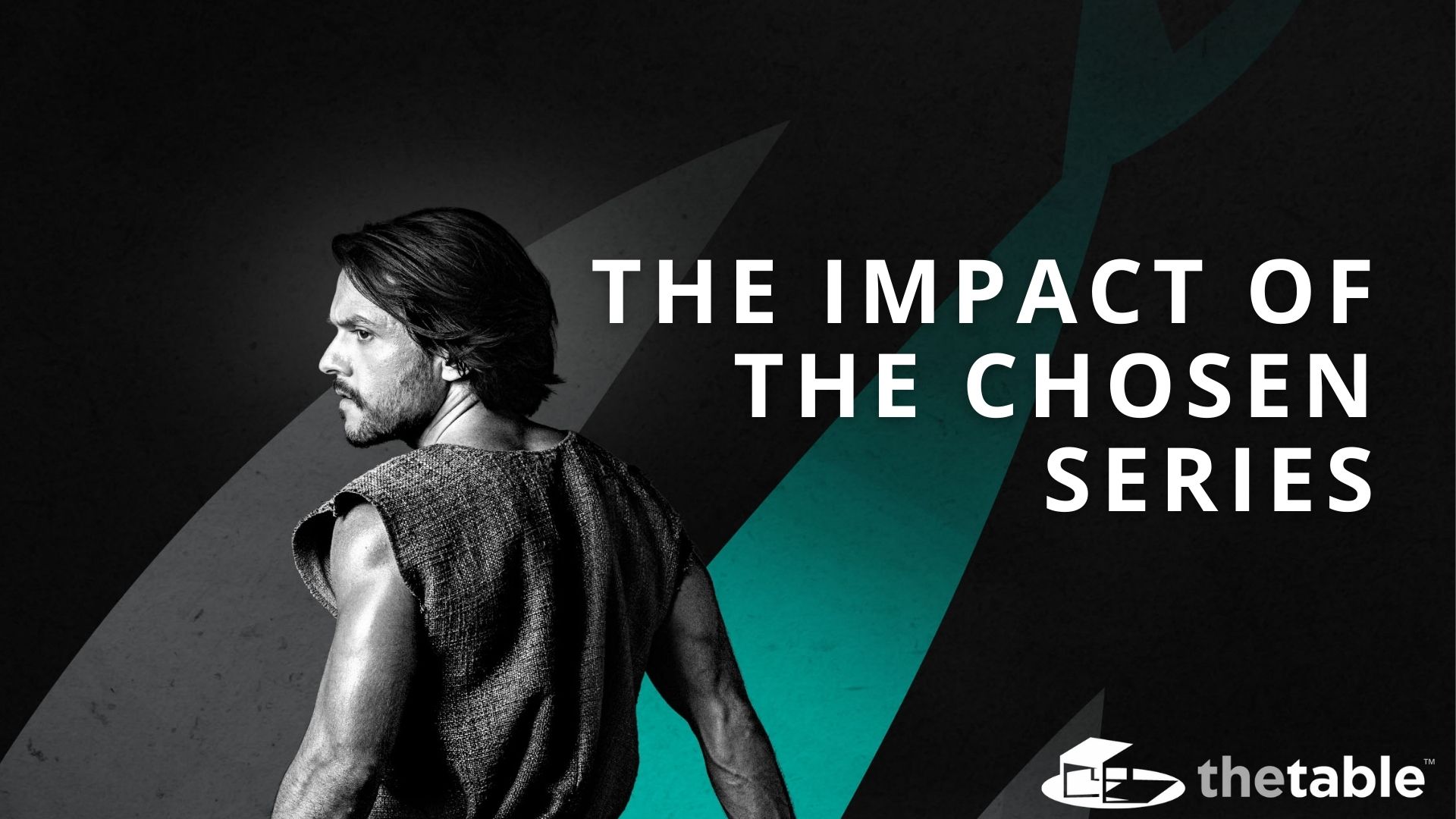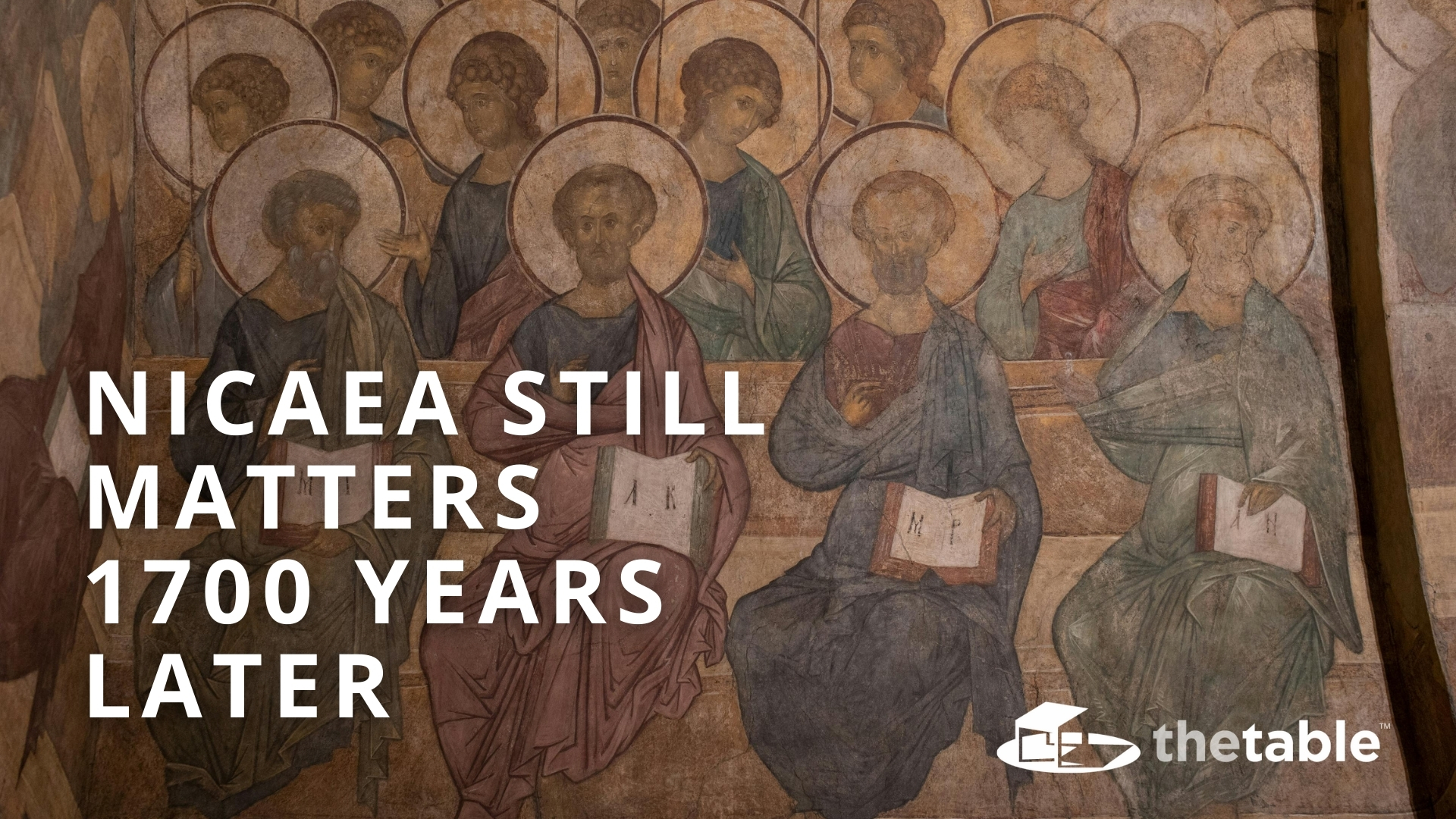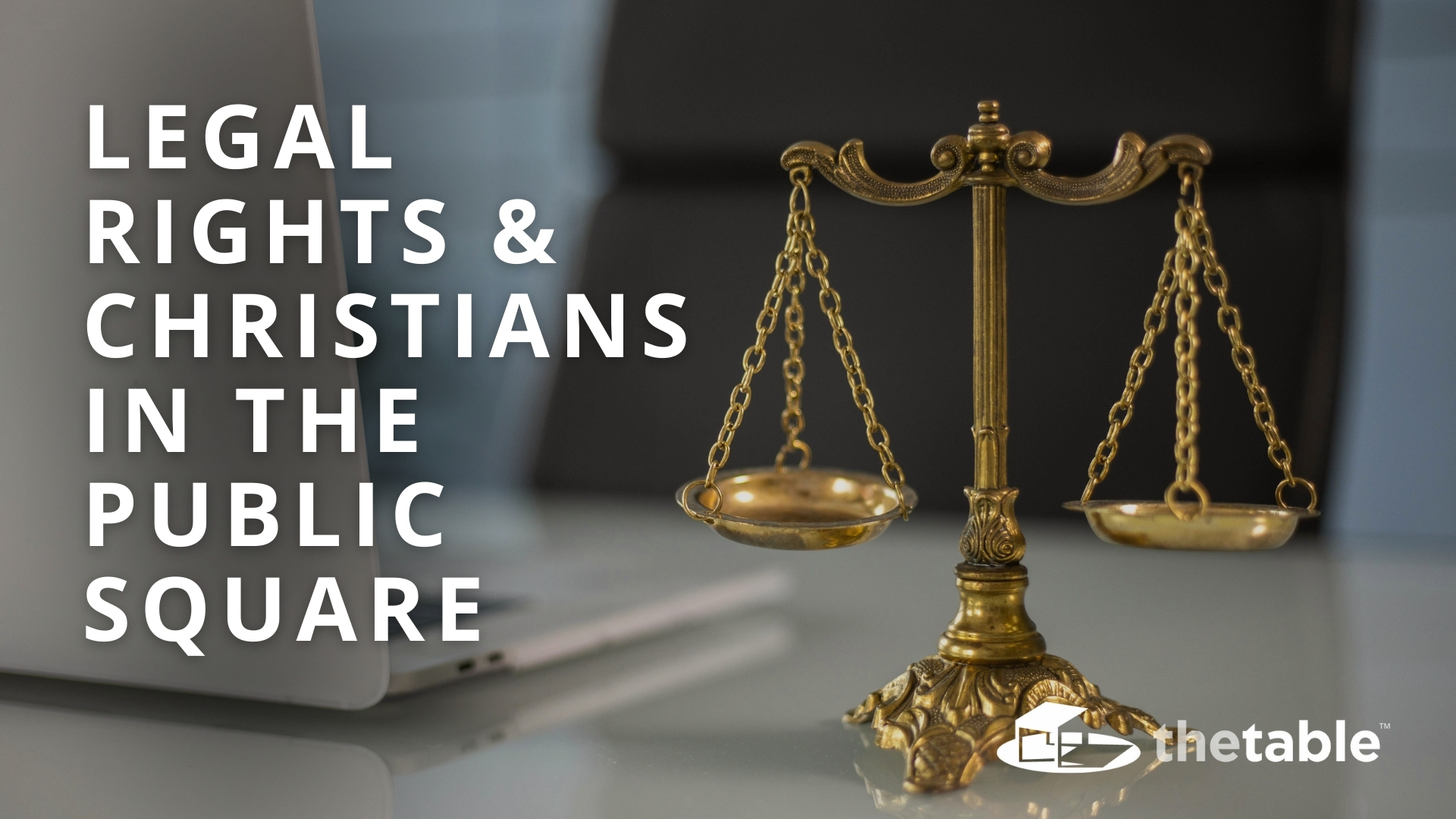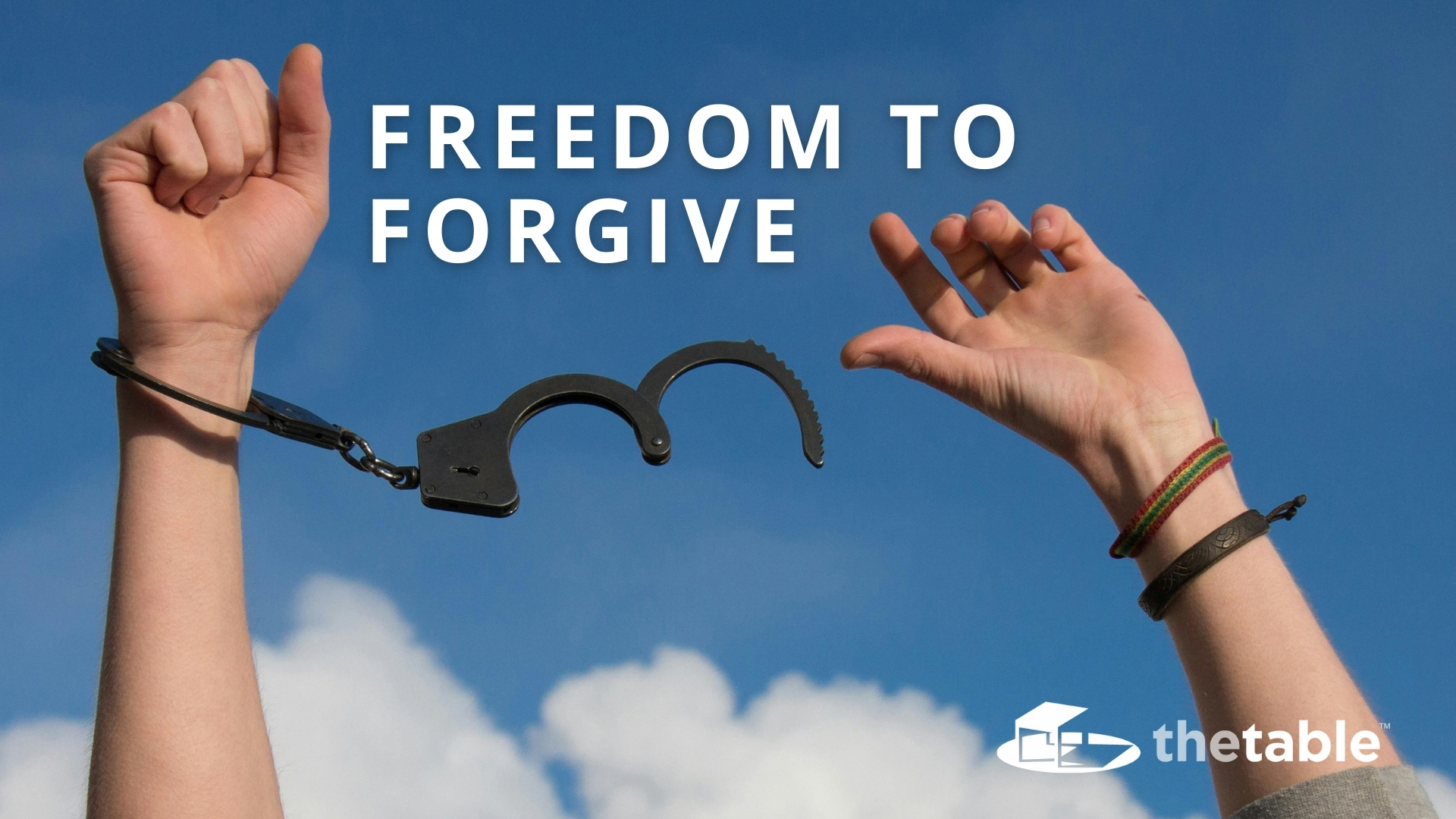Understanding Different Views of the End Times
Description
Kymberli Cook:
Welcome to The Table Podcast, where we discuss issues of God and culture, to show the relevance of theology to everyday life. My name is Kymberli Cook and I am the assistant director at the Hendricks Center. And we are so thrilled that you have joined us today. And as we talk about the various different views, Christians hold on the end times. Here we go, gentlemen, here we go. We are joined by two particularly qualified gentlemen who have dedicated their lives to studying the scripture. We have Dr. Sam Storms, who is author and president of Enjoying God Ministries. Sam, thank you so much for being here with us today.
Sam Storms:
Good to be with you.
Kymberli Cook:
And then we're also joined by the ever popular, wonderful, my boss, so I have to say nice things, Darrell Bock, executive Director for Cultural Engagement and senior research professor of New Testament here at DTS. Thank you for being with us on this table.
Darrell Bock:
You did that beautifully, Kym. Just keep going.
Kymberli Cook:
Yeah. There's probably a few more titles we could add in there.
Darrell Bock:
Yeah, don't go there.
Kymberli Cook:
So, let's let you get to know these guests a little bit better. Gentlemen, if you wouldn't mind telling us just a little bit about yourself, and particularly how you ended up being buried in the Book of Revelation and different other kinds of apocalyptic literature. How did you end up thinking about the end times? So, Sam, let's start with you.
Sam Storms:
Okay. Well, I think I started thinking about it seriously when I was a student of Dallas. I think I'm a little bit older than Darrell. I got my Th.M. in 1977. Darrell, what year did you graduate?
Darrell Bock:
79. You were a grader in the classes of my Acts of Jesus.
Kymberli Cook:
Was he really a grader?
Darrell Bock:
Yeah.
Kymberli Cook:
That's awesome.
Darrell Bock:
So, he can claim the elder's role and I'll respect my elders. Okay?
Kymberli Cook:
I love it.
Sam Storms:
Really, when I came to Dallas, I was a fully dispensational pretribulational premillennial, and the first kind of push in another direction came in a class on the Greek exegesis of Ephesians. I had Dr. John Grassmick as my professor, and we were assigned a paragraph in Ephesians. And just arbitrarily, I now would say providentially, I was given a chapter two, verses 11 to the end of the chapter. And that just stirred my thinking about the relationship between Israel and the church and this idea of the one new man, how Gentiles are now brought in as co-heirs and members of the Commonwealth of Israel together with the people of Israel.
So, that began to kind of erode very slowly, some of my dispensational thought about the distinction between Israel and the church. I still maintain the views that Dallas promotes, until I graduated. It really wasn't until the early 1980s that my view began to change a little bit more. So yeah, I left Dallas, I pastored in Dallas for a while. I got my PhD at the University of Texas at Dallas and just progressed from there. Became, I guess, amillennial in about 1982 or 83, initially wrote a book defending it and decided not to publish it, which was God's hand saying, no, not yet. And then as I progressed and began to think and study this and interact with other scholars more deeply, I finally published my book. I've got it right here, Kingdom Come, the Amillennial Alternative. It's a rather big one. Darrell writes big books too.
Darrell Bock:
Exactly right. Yeah.
Kymberli Cook:
Something about the '70s, huh?
Darrell Bock:
Yeah, that's right. Yeah, we had time.
Sam Storms:
Yeah. So, that came out, I can't even remember, like 2013 or 14. So yeah, I embrace the amillennial perspective. I have tremendous respect for all the other views. I think Darrell would agree with me on this that, the one thing that unites us is our belief in the personal, physical, visible return of Jesus Christ to consummate his kingdom. And all the other tangential events that either precede or follow, of course those are the areas of debate and discussion. But our consistent position is that Jesus is coming back, which puts us both at odds with what's called full preterism, the idea that somehow the second coming has already happened in 70 AD, it was a spiritual coming. I must confess, I can't get my mind around full preterism. I don't understand how the judgment happened, how we're in the new heavens and the new earth. Is history ever going to end? I mean, there's so many questions.
Darrell Bock:
It leaves a little to be desired, doesn't it, Sam?
Sam Storms:
Oh yeah. It's amazing how many have started embracing that view, but we can get into that later if we want to. So yeah, I pastored for many, many years in Dallas and Oklahoma, taught at Wheaton for four years, left there in 2004 and have been either in local church ministry or writing and speaking with Enjoying God Ministries up to the present day.
Kymberli Cook:
Wonderful. Yeah, and if the listener are a little confused as to all of the terms that he just used, don't worry, we're going to unpack all that. Darrell, what about you? How did you end up thinking through this.
Darrell Bock:
Well, after Sam was grading my exegetical, I did my work in Aberdeen in Scotland after being at Dallas and with Craig Blaising worked on dispensationalism and thinking about dispensationalism. I too have spent a lot of time in Ephesians 2, in particular in 11 to 22, and basically was wrestling with the question, how does our view of eschatology impact how we think about the church and how we live today? And having an emphasis less on the calendrical aspects, which tends to be what people think about, and more about how does the church being, at least theoretically, a preview of what is to come, indicate how we're supposed to interact and live.
So, there's an ethical dimension to the way I think about eschatology that is a part of my own thinking. I haven't changed views from when I was a student. I've stayed dispensational, but I have oftentimes commented on certain things that were a part of traditional dispensationalism, that I think weren't a reflection of all that scripture does and says about the end times. And this emphasis in particular on thinking about the impact of eschatology on the present is an example. And Acts 1 is a key passage for me here, because the disciples asked, "Is this the time you're going to restore the kingdom to Israel?" And Jesus's answer was, "That's the father's business. In the meantime, I've given you an assignment to take the gospel out into the world." And so, thinking through that emphasis and that priority is a part of what is underneath what I just said about how I view eschatology.
Kymberli Cook:
And that theme, actually, for you listening, that is heavily addressed in a podcast that we have called What You Believe About The End, Shapes How You Live Now. So just, if that's something that interests you and you think, oh, I wonder what that is or what he means by that, a little bit more, then there's actually a whole podcast that digs into that. So, we've established that you all have clearly spent your life thinking about these things, digging into it. And definitely there have been seasons in the history of the church where eschatology is one of the main conversations in certain circles. Other times there, it ebbs and flows a bit, but there's always at least a vein of people who are quite interested and quite dug into thinking through these things, which is good because Christians need to recognize that it doesn't matter whether you've actually thought through it, you do hold some kind of view of the end and it does impact how you are living. It's just whether you've really thought about it or not.
And the parallel reality, the second reality is that, there are actually a lot of things to think about. So, we've already heard Sam and Darrell talking about, they take two different perspectives and there are a variety of different interpretations. And I don't know, with you listening, if you have dug into this conversation or this is the first time you're ever thinking about these things. But if you were to dig in, you would find that there's lots and lots of conversations. Because there are kind of key interpretational decisions about what the Bible says, that create various views. So, our goal today is to give you a bit of a mental paradigm for all of these views, not necessarily to convince you of any specific one. And I just want to be very clear, everybody, Sam and Darrell included, take scripture very seriously. They love scripture and they are wanting to do justice to what they find in scripture. And a variety of people have seen different nuances in what they feel scripture is saying.
So, this podcast is talking about the paradigms of how that has been created or we're trying to create a paradigm, for understanding the different interpretations in different ways people have taken what the Bible says about the end. So, with all of that said, first we need to talk about how it is we actually read about these things in the Bible. So, first and foremost, if our listener has never dug into these things, where do we hear about the end times in scripture? What parts of the Bible talk about this and where would they go to even find, okay, this is what this person's saying, this is what this person's saying, but what does the Bible actually even s






